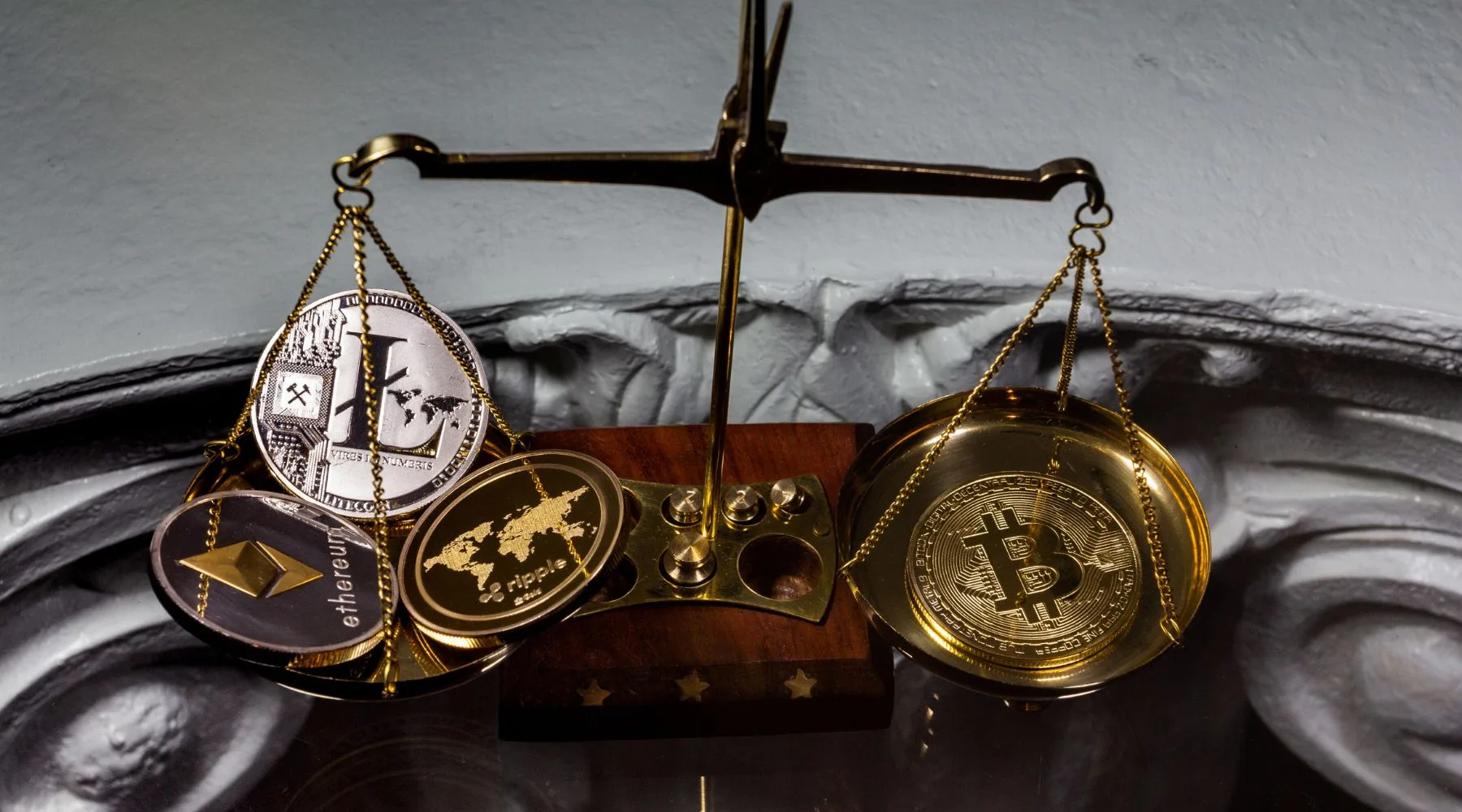Crypto assets, tax time and the future of regulation: Things to know for 2023

With crypto gaining increasing prominence in portfolios, how can owners ensure they're meeting their tax obligations?
 Sponsored by Koinly – Crypto tax made easy. Koinly is a crypto tax tool with over 750+ integrations across the top crypto exchanges, wallets, and blockchains. Trusted by over 1 million users around the globe, Koinly generates reports consistent with ATO guidance, incorporating all your crypto trades, staking, airdrops, and NFTs.
Sponsored by Koinly – Crypto tax made easy. Koinly is a crypto tax tool with over 750+ integrations across the top crypto exchanges, wallets, and blockchains. Trusted by over 1 million users around the globe, Koinly generates reports consistent with ATO guidance, incorporating all your crypto trades, staking, airdrops, and NFTs.
Use code FINDER23 for 30% off your first tax report! T&Cs apply.
Crypto is an increasingly common presence in investment portfolios. But if you're unsure how that applies to your own crypto assets – you're not alone.
Today, we're taking a look at some of the key tax considerations around crypto – why it's important, your past returns, what the ATO is looking for, and what the future holds for crypto tax legislation.

Crypto tax reporting – and how you can make it easier for yourself
In terms of reporting, crypto is like any other asset such as shares. Gains and losses need to be reported, and those assets are taxed accordingly.
Where it gets more complex, says Danny Talwar, head of tax at Koinly, is with the variety of transactions that can be involved within crypto during the course of its ownership.
"One of the big challenges we see at the moment is crypto owners who take an overly simplified approach," says Talwar. "The assumption is often that tax is just paid on the basis of the initial purchase and selling point."
But this isn't the case – tax liabilities can emerge at multiple points during the lifespan of ownership.
This is because crypto has a more dynamic range of functions than most other asset classes.
Once you move beyond simply buying and selling, there are considerations like staking, yield farming and airdrops, to name a few.
Obviously, keeping track of different transactions can be exceedingly tricky, especially if you've owned crypto for years and have traded across multiple exchanges and blockchains. So tools like Koinly – a tax calculator that's designed for crypto – can significantly streamline the process.
"Koinly lets you create a clear picture for your accountant," says Talwar. "You're able to integrate with over 750 exchanges, wallets and blockchains, so you can see what types of transactions have taken place and categorise them accordingly."
By being able to report more accurately, you'll be able to get a clearer picture of your gains, your losses and how you can lodge your return appropriately.
Additionally, if you use the code FINDER23, you'll receive 30% off your first tax report.
Crypto and past tax returns – what are your obligations?
If you've previously lodged tax returns without factoring in your crypto, the end of this financial year represents a good opportunity to amend prior errors.
Crypto assets are likely to be under close scrutiny this financial year (more on that in a moment). So it may be worth reviewing your portfolio and determining whether there are previous gains and losses that need to be reported.
"The ATO has made it clear across the last few financial years - crypto is taxable and they know what you've been up to with exchange data matching programs requiring exchanges to report transactional information to the ATO," says Talwar. "We'd always recommend discussing your specific circumstances with a tax professional, as they'll be able to provide you with advice that is tailored to your situation."
This is where tools like Koinly can also be helpful. You're able to track 10+ years of historical crypto and fiat spot prices – this way, you can ensure that you're lodging costs correctly.
The ATO – and what they're looking for on the crypto landscape
Crypto looks set to be on the ATO's radar again for FY22/23. It's not really surprising – major events like the FTX collapse have ensured that crypto in general has had a rough year in the press.
In turn, this will attract government scrutiny. But with that said, it doesn't mean the ATO is hostile either, explains Talwar.
"There is clear guidance on the basics of crypto trading and the associated tax treatment of this," says Talwar. "Blockchain-based technologies are still evolving quite rapidly and thus it's not always easy for government to have a position on the more complex crypto matters such as DeFi, but this is in development and there have been public consultations to address crypto tax issues."
Talwar notes that if you're unsure about where your own portfolio sits, it's best to get out in front.
"Working with crypto-savvy tax professionals and having the right supporting software is critical," he says.

Make tax time easy with Koinly
When you own crypto assets, tax time can be a real chore. But that's where Koinly comes in, to help take the headaches out of filing your tax return.
🧮 Streamline your tax calculations
Easily work out your projected taxes across crypto, NFTs and DeFi within 20 minutes, thanks to Koinly's intuitive interface.
↔️ Make importing your transactions easy
Koinly is able to track and compile data from 750+ integrations, across a huge range of exchanges, wallets and blockchains. So there's no more need to worry about manually wrangling spreadsheets or paper records.
📋 Generate accountant-ready reports
Koinly was created to provide reports compliant with Australian tax standards. So once you've imported your transactions, you'll be able to generate an easy report that can go straight to your accountant.
💸 Save 30% off your first tax report
Sign up today with the code FINDER23 and get 30% off your first tax report with Koinly.
Future developments in crypto regulation – and why it's good news for investors
Regulation has tended to be a contentious topic in the crypto world. But as crypto gains increasing prominence as an asset class, this will have to change.
For Talwar, regulation is not only inevitable – but positive. The investment comes with inherent risks, Talwar points out, but that doesn't mean all risk is inevitable. He's encouraged by the signs he sees of government interest.
"I think there's been a trend for crypto investors to shy away from scrutiny," he says. "But realistically, if the space expects to be taken seriously among mainstream investors, it needs to have checks and balances in place."
What Talwar does hope, though, is that appropriate nuance is applied.
"I think over the last few years we've really seen that crypto is constantly changing," says Talwar. "So I want more investor protections in place, but I want to make sure that innovation isn't stifled either. Whatever regulation emerges, we want to make sure it strikes an effective balance."
Check out the Koinly website for more information and helpful crypto tax guides.
Track your crypto taxes with Koinly
Compare other cryptocurrency tax software here

